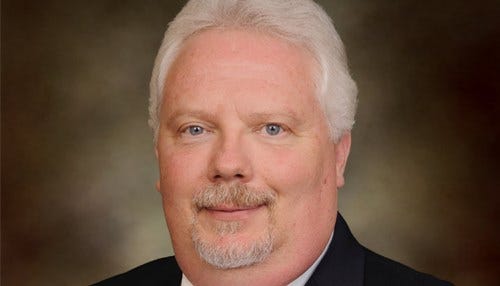‘Wet Utilities’ Are Key to Rural Economic Development

Subscriber Benefit
As a subscriber you can listen to articles at work, in the car, or while you work out. Subscribe NowSuccessful economic development relies on the presence of key infrastructure, such as transportation and fiber optic access. In rural counties – such as Hancock County – a missing piece of the infrastructure puzzle that’s been hampering economic development is the availability of "wet utilities."
Taken for granted in cities like Indianapolis, wet utilities consist of water and sewer services. Today, most of the residents and businesses in rural Hancock County are served by private well water and septic systems.
This has put a real drag on economic development in an area that should be poised for growth. Hancock County is uniquely positioned along State Road 9, which connects three Interstates (70, 69 and 74). Along this 45 mile stretch, only about eight miles have public water and sewer.
Hancock County has had its share of commercial and industrial developers look at sites in the area, only to turn elsewhere when the subject of wet utilities was raised. Commercial office buildings don’t want to deal with the hassle of a septic system large enough to handle the building’s tenants and the regulations required for testing well water. Industrial users often produce waste water that can’t go into a septic system. Even if the water could, a rural septic system wouldn’t be able to handle the volume.
The alternative is for these developers to invest in a package sewage treatment plant, which is a small public sewage plant. This can get costly and puts developers in a business that’s outside their core competency.
The story is the same for developers looking for land parcels for new residential developments. The trend towards subdivisions with smaller lot sizes makes rural septic difficult and increases the chance for contaminating drinking water. Developers then are forced to subdivide into 2-5 acre lots to share a septic system, which drives up the cost of homesites and makes investment less attractive.
Interestingly, rural farmers would rather see smaller residential lots as well, keeping residential areas compact and maintaining land for agricultural and recreational use.
NineStar Connect, a cooperative utility in Hancock County, has a solution that will help the county attract beneficial economic development opportunities while improving the county’s “quality of place.” NineStar Connect recently received approval from the Indiana Utility Regulatory Commission to be a water and wastewater provider.
At the same time, history was made, as NineStar Connect became the only rural co-op in the United States to offer electricity, fiber optic, water and sewer services. By putting these four utilities under one roof, the organization can combine billing, support and other fixed overhead costs that helps the co-op keeps costs down.
NineStar is taking a "Come and we will build it" approach to water and sewer, building capability as it’s needed, which opens up thousands of acres that now can be considered for development in Hancock County.
The approach already is paying off.
County Materials Corporation, a manufacturer and distributor of high quality concrete and related construction products, acquired the assets of Independent Concrete Pipe’s Indianapolis and Maxwell locations in December 2014. The company recently made the decision to upgrade the existing Maxwell facility in Hancock County with the construction of a manufacturing plant, which will employ approximately 80 full time people during peak season. The availability of wet utilities was seen as a key positive for the company as they evaluated the construction of the new facility.
A 2014 study of the state’s water resources by the Indiana Chamber found that more of Indiana’s economy requires abundant water resources than any other state. The state’s focus on manufacturing and the growing medical/pharmaceutical industries have naturally made water resources critical to the business investments made in the state.
For rural Indiana, it will take creative solutions to ensure wet utilities are available so these counties are not left in the dust of economic development.
Michael R. Burrow is president and CEO of NineStar Connect.
